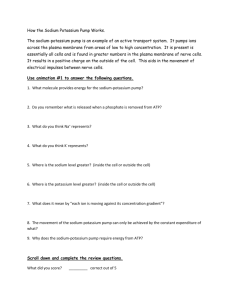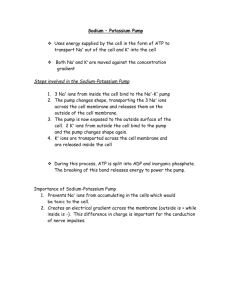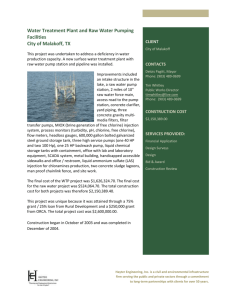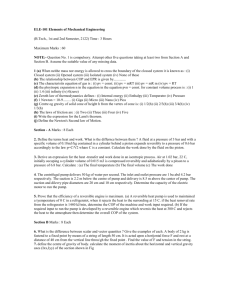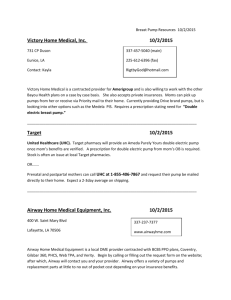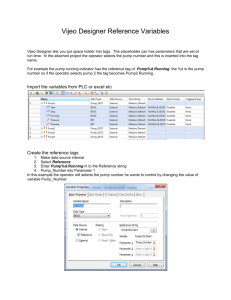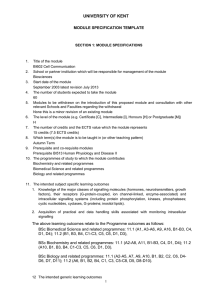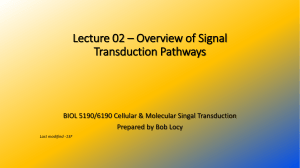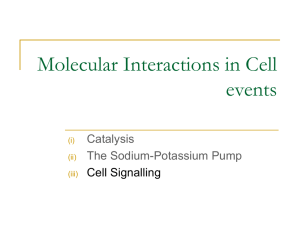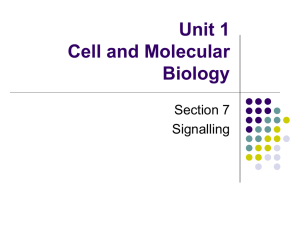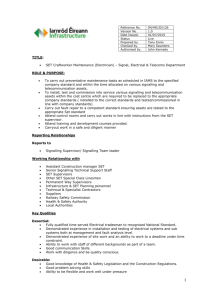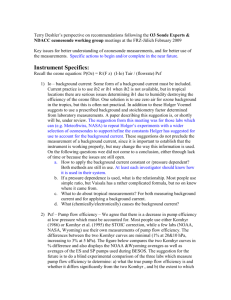Unit 1 Cell and Molecular Biology
advertisement
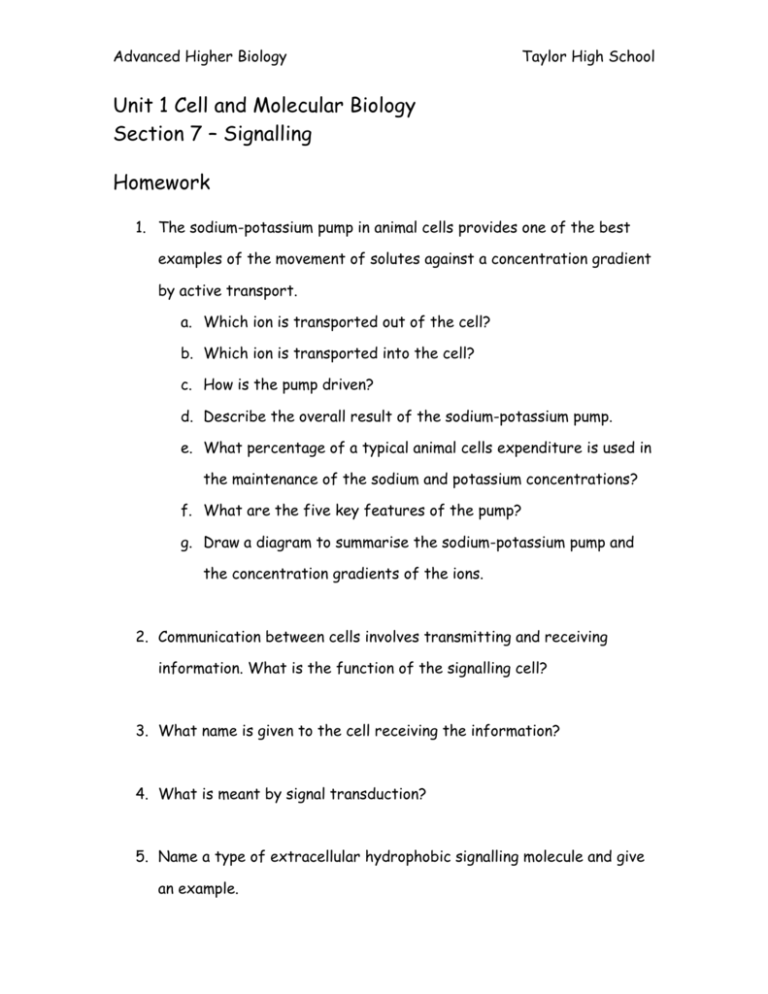
Advanced Higher Biology Taylor High School Unit 1 Cell and Molecular Biology Section 7 – Signalling Homework 1. The sodium-potassium pump in animal cells provides one of the best examples of the movement of solutes against a concentration gradient by active transport. a. Which ion is transported out of the cell? b. Which ion is transported into the cell? c. How is the pump driven? d. Describe the overall result of the sodium-potassium pump. e. What percentage of a typical animal cells expenditure is used in the maintenance of the sodium and potassium concentrations? f. What are the five key features of the pump? g. Draw a diagram to summarise the sodium-potassium pump and the concentration gradients of the ions. 2. Communication between cells involves transmitting and receiving information. What is the function of the signalling cell? 3. What name is given to the cell receiving the information? 4. What is meant by signal transduction? 5. Name a type of extracellular hydrophobic signalling molecule and give an example. Advanced Higher Biology Taylor High School 6. With the aid of a diagram describe the action of cortisol. 7. Give two reasons why the majority of extracellular hydrophilic molecules cannot cross the membrane. 8. Where are the receptor proteins for these signals located? 9. Name the three main classes of cell surface transmembrane receptors. 10. What other name is given to ion-channel linked receptors? 11. Where is this type of receptor found? 12. Which receptors are found in all types of cells?
